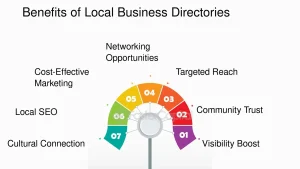The UAE’s business landscape is characterized by its robust regulatory framework, strategic location, and pro-business environment, making it an attractive destination for entrepreneurs worldwide.
By understanding the nuances of each business structure and aligning them with your specific needs and objectives, you can embark on your entrepreneurial journey with confidence and clarity.
As you navigate the intricacies of business establishment in the UAE, consider seeking guidance from legal and financial experts who can provide invaluable insights and ensure compliance with local regulations.
Additionally, stay informed about changes in legislation and market trends to adapt your business strategy accordingly and seize emerging opportunities.
Ultimately, the choice of business structure sets the foundation for your venture’s success, influencing aspects such as liability, taxation, and operational flexibility.
Whether you opt for a sole proprietorship to test a new business idea or establish a joint venture to capitalize on collaborative opportunities, each entity type offers distinct advantages tailored to your entrepreneurial ambitions.
As you embark on your journey in the UAE’s vibrant business landscape, embrace the spirit of innovation, resilience, and determination that defines successful entrepreneurs.
With the right business structure and a clear vision for the future, you can navigate challenges, capitalize on opportunities, and achieve sustained growth and prosperity in the dynamic market of the United Arab Emirates.
From sole proprietorships to offshore companies, understanding the intricacies of each entity type is crucial for entrepreneurs seeking success in this dynamic market. In this comprehensive guide,
Choosing the Right Business Entity Type
Before delving into the specifics of each business structure, it’s essential to assess your business activities, long-term objectives, and risk tolerance.
By aligning your goals with the appropriate entity type, you can optimize your business operations and mitigate potential challenges.
Sole Proprietorship
- Overview: A sole proprietorship is owned and operated by a single individual, offering simplicity and full control over business decisions.
- Benefits: Enjoy complete autonomy in decision-making, retain all profits generated by the business, and minimal regulatory requirements ensure ease of establishment and operation.
General Partnership
- Overview: In a general partnership, two or more individuals share ownership, responsibilities, and profits, pooling resources for mutual benefit.
- Benefits: Share financial obligations and risks with partners, leverage combined expertise and networks, and flexibility in management structures fosters agile decision-making.
Limited Liability Partnership (LLP)
- Overview: Combining elements of partnerships and corporations, an LLP offers partners limited liability protection while retaining the flexibility of a partnership.
- Benefits: Partners enjoy limited personal liability, tax advantages, and the ability to establish professional credibility through formal registration.
Limited Liability Company (LLC)
- Overview: A popular choice for small to medium-sized enterprises, an LLC provides shareholders with limited liability and operational flexibility.
- Benefits: Shield personal assets from business liabilities, benefit from favorable tax treatment, and attract potential investors with a structured corporate framework.
Public Shareholding Company (PJSC)
- Overview: A PJSC offers shares to the public, typically listed on a stock exchange, facilitating access to capital and enhancing corporate governance standards.
- Benefits: Tap into capital markets for fundraising, enhance brand visibility and credibility, and liquidity for shareholders fosters investor confidence.
Private Shareholding Company (PSC)
- Overview: Similar to a PJSC but with shares held privately among a limited number of shareholders, offering greater control and privacy.
- Benefits: Maintain control over ownership and decision-making, shield shareholders from personal liability, and preserve confidentiality in business dealings.
Joint Venture (JV)
- Overview: A collaborative arrangement between two or more parties to pursue a specific project or business activity, leveraging shared resources and expertise.
- Benefits: Pool resources to mitigate risks and capitalize on opportunities, access new markets and distribution channels, and foster innovation through diverse perspectives.
Representative Office
- Overview: A representative office serves as a liaison for a foreign company, conducting market research and building relationships in the UAE.
- Benefits: Gather market intelligence to inform strategic decisions, establish a local presence without substantial investment, and lay the groundwork for future expansion.
Branch Office
- Overview: An extension of a foreign company permitted to conduct business in the UAE, leveraging the parent company’s brand and resources.
- Benefits: Expand market reach with minimal setup costs, benefit from centralized management and operational synergies, and navigate regulatory requirements with support from the parent company.
Free Zone Entities
- Overview: Businesses operating within designated free zones, offering tax incentives, 100% foreign ownership, and streamlined administrative procedures.
- Benefits: Enjoy tax exemptions and customs benefits, repatriate 100% of profits, and access state-of-the-art infrastructure and business support services.
Offshore Companies
- Overview: Offshore companies established in jurisdictions like the UAE offer tax optimization and asset protection benefits.
- Benefits: Maximize tax efficiency through favorable regulatory environments, safeguard assets from political instability or economic uncertainties, and preserve confidentiality in financial affairs.
Conclusion
Selecting the right business structure is a critical step towards realizing your entrepreneurial ambitions in the UAE.
By carefully evaluating the benefits and considerations associated with each entity type, you can position your business for long-term success and growth.
Whether you’re a budding startup or an established multinational corporation, the UAE’s diverse array of business structures provides ample opportunities to thrive in this vibrant market.
Embrace the journey with confidence, armed with the knowledge to navigate the complexities of business establishment and unlock your full potential in the UAE.
Frequently Asked Questions (FAQs)
What factors should I consider when choosing a business structure in the UAE?
- When selecting a business structure in the UAE, consider factors such as your business activities, desired level of liability protection, taxation implications, ownership structure, and regulatory requirements. Assessing these factors will help you determine the most suitable entity type for your venture.
Can I have full ownership of my business as a foreign entrepreneur in the UAE?
- Yes, certain business structures in the UAE, such as Free Zone Entities and Offshore Companies, allow foreign entrepreneurs to retain 100% ownership of their businesses.
- However, ownership restrictions may apply in certain sectors, so it’s essential to research and choose the appropriate jurisdiction and entity type for your business.
What are the tax implications of different business structures in the UAE?
- The UAE offers various tax incentives and exemptions for businesses, depending on their structure and location.
- Free Zone Entities typically enjoy tax exemptions for a certain period, while mainland companies are subject to corporate tax rates.
- Offshore Companies may benefit from zero taxation on profits. It’s advisable to consult with tax experts to understand the specific tax implications for your business structure.
How long does it take to establish a business in the UAE?
- The timeframe for setting up a business in the UAE varies depending on the chosen business structure, jurisdiction, and completion of necessary documentation.
- While some entities, such as sole proprietorships, can be established relatively quickly, others, like Public Shareholding Companies, may require more time due to regulatory approvals and compliance procedures.
Can I change my business structure after establishing my business in the UAE?
- Yes, it’s possible to change your business structure in the UAE, but the process may involve legal and administrative steps.
- For example, converting from a sole proprietorship to a Limited Liability Company (LLC) or transitioning from a Free Zone Entity to a mainland company may require approval from relevant authorities and amendments to legal documents.
- It’s advisable to seek guidance from legal and financial advisors when considering such changes.









